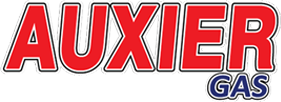Safety
Safety

Propane has a strong, unpleasant smell like rotten eggs, a skunk's spray or a deceased animal. Manufacturers add the smell deliberately to help alert customers to propane leaks. Teach everyone in your home what propane smells like, and always take action if you smell any foul odor.
If You Smell Gas:
- NO FLAMES OR SPARKS: Immediately put out all smoking materials and other open flames. Do not operate lights, telephones, appliances or cell phones. Flames or sparks from these sources can trigger an explosion or fire.
- LEAVE THE AREA IMMEDIATELY: Make sure everyone is out of the building or area where you suspect gas is leaking.
- SHUT OFF THE GAS: Turn off the main gas supply valve on your propane tank, if it is safe to do so.
- REPORT THE LEAK: From somewhere away from the propane leak, call your propane retailer right away. If you can't reach them, call 911 or your local fire department.
- DO NOT RETURN TO THE BUILDING OR AREA: It may be unsafe to do so.
- GET YOUR SYSTEM CHECKED: Before you attempt to use any of your propane appliances, have a qualified service technician check your entire system to ensure it is leak-free.
Auxier Gas' safety program
Auxier Gas offers an award-winning preventive maintenance program called GAS Check® (Gas Appliance System Check). Trained technicians inspect entire propane systems and appliances to ensure they are running safely and efficiently, so consumers can save money and enjoy a healthy environment. The program also educates homeowners on the proper maintenance of propane appliances and how to safely handle propane. The Certified Employee Training Program (CETP) is a nationally recognized training program for people involved in the handling of propane, equipment and appliances. CETP is being used extensively throughout the country and is continually updated and expanded. The objectives of the emergency response program are to increase the level of responder safety, improve efficiency to mitigate emergencies, and to encourage propane marketers and local emergency responders to develop working relations before an accident occurs. In addition to the textbook and training materials, there is a website www.propanesafety.com dedicated to the program that is continually updated, with interactive scenarios utilizing real world emergency situations. Firefighters can also get information by calling a toll free number 800.968.9484.
